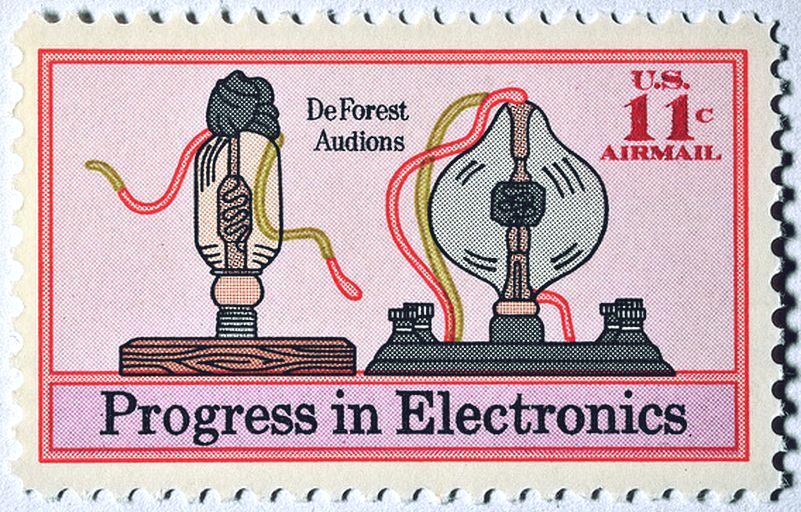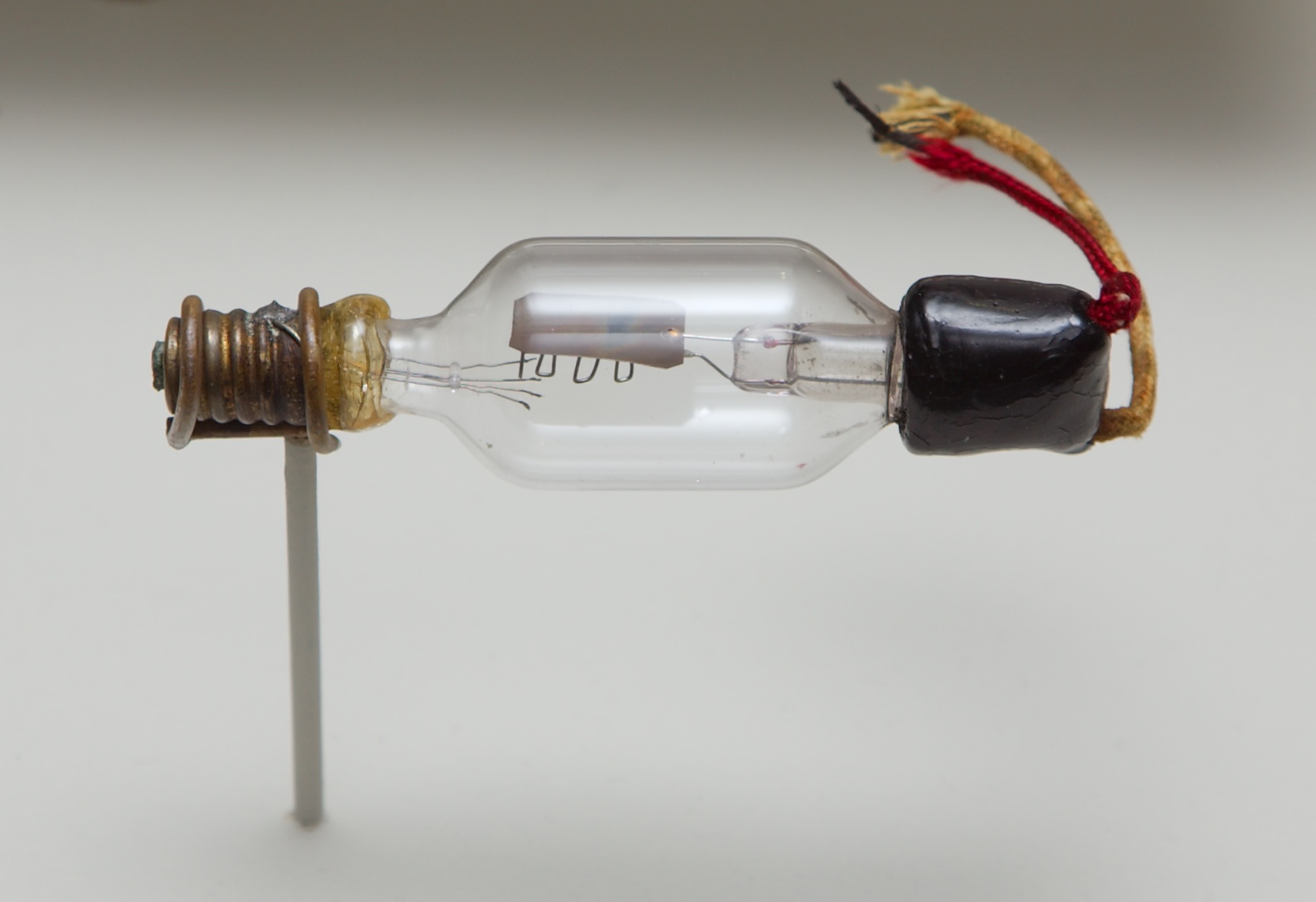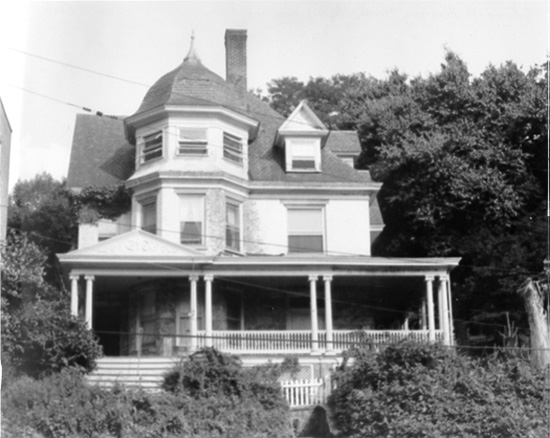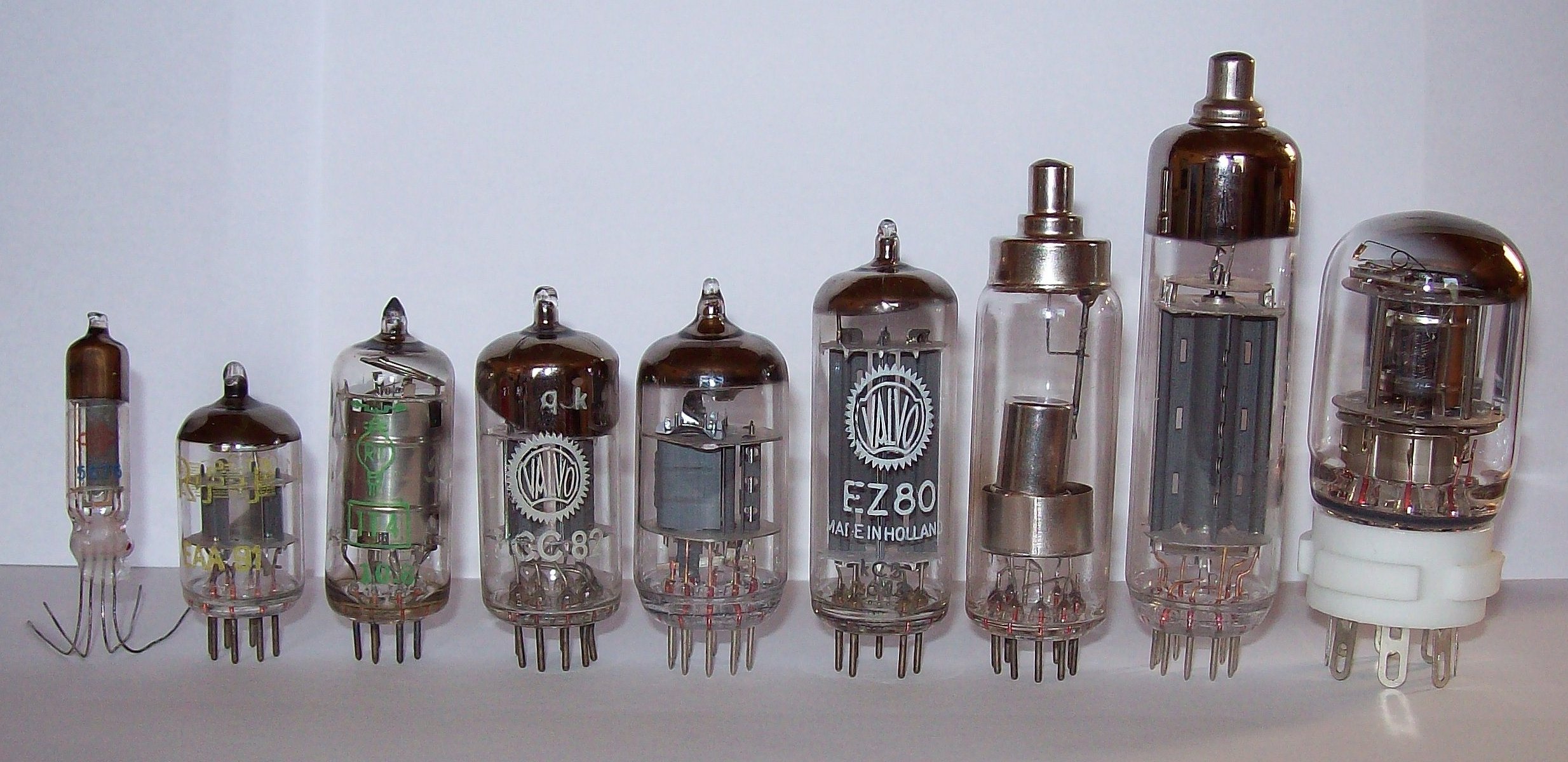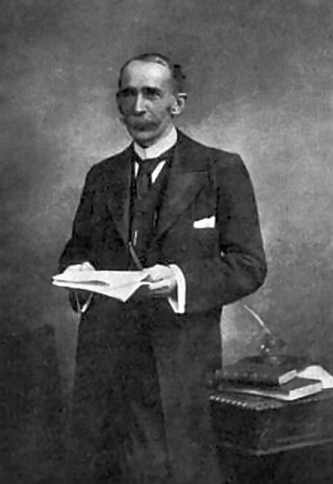|
Audion Amplifier Tube
The Audion was an electronic detecting or amplifying vacuum tube invented by American electrical engineer Lee de Forest in 1906.De Forest patented a number of variations of his detector tubes starting in 1906. The patent that most clearly covers the Audion is , Space Telegraphy', filed January 29, 1907, issued February 18, 1908 The link is to a reprint of the paper in the ''Scientific American Supplement'', Nos. 1665 and 1666, November 30, 1907 and December 7, 1907, p.348-350 and 354-356. It was the first triode, consisting of an evacuated glass tube containing three electrodes: a heated filament, a grid, and a plate. It is important in the history of technology because it was the first widely used electronic device which could amplify. A low power signal at the grid could control much more power in the plate circuit. Audions had more residual gas than later vacuum tubes; the residual gas limited the dynamic range and gave the Audion non-linear characteristics and erratic per ... [...More Info...] [...Related Items...] OR: [Wikipedia] [Google] [Baidu] |
Triode Tube 1906
A triode is an electronic amplifying vacuum tube (or ''valve'' in British English) consisting of three electrodes inside an evacuated glass envelope: a heated filament or cathode, a grid, and a plate (anode). Developed from Lee De Forest's 1906 Audion, a partial vacuum tube that added a grid electrode to the thermionic diode ( Fleming valve), the triode was the first practical electronic amplifier and the ancestor of other types of vacuum tubes such as the tetrode and pentode. Its invention founded the electronics age, making possible amplified radio technology and long-distance telephony. Triodes were widely used in consumer electronics devices such as radios and televisions until the 1970s, when transistors replaced them. Today, their main remaining use is in high-power RF amplifiers in radio transmitters and industrial RF heating devices. In recent years there has been a resurgence in demand for low power triodes due to renewed interest in tube-type audio systems by ... [...More Info...] [...Related Items...] OR: [Wikipedia] [Google] [Baidu] |
Radio Frequency
Radio frequency (RF) is the oscillation rate of an alternating electric current or voltage or of a magnetic, electric or electromagnetic field or mechanical system in the frequency range from around to around . This is roughly between the upper limit of audio frequencies and the lower limit of infrared frequencies; these are the frequencies at which energy from an oscillating current can radiate off a conductor into space as radio waves. Different sources specify different upper and lower bounds for the frequency range. Electric current Electric currents that oscillate at radio frequencies (RF currents) have special properties not shared by direct current or lower audio frequency alternating current, such as the 50 or 60 Hz current used in electrical power distribution. * Energy from RF currents in conductors can radiate into space as electromagnetic waves ( radio waves). This is the basis of radio technology. * RF current does not penetrate deeply into electrica ... [...More Info...] [...Related Items...] OR: [Wikipedia] [Google] [Baidu] |
Regenerative Circuit
A regenerative circuit is an amplifier circuit that employs positive feedback (also known as regeneration or reaction). Some of the output of the amplifying device is applied back to its input so as to add to the input signal, increasing the amplification. One example is the Schmitt trigger (which is also known as a regenerative comparator), but the most common use of the term is in RF amplifiers, and especially regenerative receivers, to greatly increase the gain of a single amplifier stage. The regenerative receiver was invented in 1912 and patented in 1914US Patent 1113149A, Edwin H. Armstrong, Wireless receiving system', filed October 29, 1913, granted October 6, 1914 by American electrical engineer Edwin Armstrong when he was an undergraduate at Columbia University. It was widely used between 1915 and World War II. Advantages of regenerative receivers include increased sensitivity with modest hardware requirements, and increased selectivity because the Q of the tu ... [...More Info...] [...Related Items...] OR: [Wikipedia] [Google] [Baidu] |
Institute Of Radio Engineers
The Institute of Radio Engineers (IRE) was a professional organization which existed from 1912 until December 31, 1962. On January 1, 1963, it merged with the American Institute of Electrical Engineers (AIEE) to form the Institute of Electrical and Electronics Engineers (IEEE). Founding Following several attempts to form a technical organization of wireless practitioners in 1908–1912, the Institute of Radio Engineers (IRE) was finally established in 1912 in New York City. Among its founding organizations were the Society of Wireless Telegraph Engineers (SWTE) and the Wireless Institute (TWI). At the time, the dominant organization of electrical engineers was the American Institute of Electrical Engineers (AIEE). Many of the founding members of IRE considered AIEE too conservative and too focused on electric power. Moreover, the founders of the IRE sought to establish an international organization (unlike the “American” AIEE), and adopted a tradition of electing som ... [...More Info...] [...Related Items...] OR: [Wikipedia] [Google] [Baidu] |
Oscilloscope
An oscilloscope (informally a scope) is a type of electronic test instrument that graphically displays varying electrical voltages as a two-dimensional plot of one or more signals as a function of time. The main purposes are to display repetitive or single waveforms on the screen that would otherwise occur too briefly to be perceived by the human eye. The displayed waveform can then be analyzed for properties such as amplitude, frequency, rise time, time interval, distortion, and others. Originally, calculation of these values required manually measuring the waveform against the scales built into the screen of the instrument. Modern digital instruments may calculate and display these properties directly. Oscilloscopes are used in the sciences, medicine, engineering, automotive and the telecommunications industry. General-purpose instruments are used for maintenance of electronic equipment and laboratory work. Special-purpose oscilloscopes may be used to analyze an automotive igni ... [...More Info...] [...Related Items...] OR: [Wikipedia] [Google] [Baidu] |
Electrical World
Electricity is the set of physical phenomena associated with the presence and motion of matter that has a property of electric charge. Electricity is related to magnetism, both being part of the phenomenon of electromagnetism, as described by Maxwell's equations. Various common phenomena are related to electricity, including lightning, static electricity, electric heating, electric discharges and many others. The presence of an electric charge, which can be either positive or negative, produces an electric field. The movement of electric charges is an electric current and produces a magnetic field. When a charge is placed in a location with a non-zero electric field, a force will act on it. The magnitude of this force is given by Coulomb's law. If the charge moves, the electric field would be doing work on the electric charge. Thus we can speak of electric potential at a certain point in space, which is equal to the work done by an external agent in carrying a u ... [...More Info...] [...Related Items...] OR: [Wikipedia] [Google] [Baidu] |
John Harold Morecroft
John is a common English name and surname: * John (given name) * John (surname) John may also refer to: New Testament Works * Gospel of John, a title often shortened to John * First Epistle of John, often shortened to 1 John * Second Epistle of John, often shortened to 2 John * Third Epistle of John, often shortened to 3 John People * John the Baptist (died c. AD 30), regarded as a prophet and the forerunner of Jesus Christ * John the Apostle (lived c. AD 30), one of the twelve apostles of Jesus * John the Evangelist, assigned author of the Fourth Gospel, once identified with the Apostle * John of Patmos, also known as John the Divine or John the Revelator, the author of the Book of Revelation, once identified with the Apostle * John the Presbyter, a figure either identified with or distinguished from the Apostle, the Evangelist and John of Patmos Other people with the given name Religious figures * John, father of Andrew the Apostle and Saint Peter * Po ... [...More Info...] [...Related Items...] OR: [Wikipedia] [Google] [Baidu] |
Edwin Howard Armstrong
Edwin Howard Armstrong (December 18, 1890 – February 1, 1954) was an American electrical engineer and inventor, who developed FM (frequency modulation) radio and the superheterodyne receiver system. He held 42 patents and received numerous awards, including the first Medal of Honor awarded by the Institute of Radio Engineers (now IEEE), the French Legion of Honor, the 1941 Franklin Medal and the 1942 Edison Medal. He was inducted into the National Inventors Hall of Fame and included in the International Telecommunication Union's roster of great inventors. Armstrong attended Columbia University, and served as a professor there for most of his life. Early life Armstrong was born in the Chelsea district of New York City, the oldest of John and Emily (née Smith) Armstrong's three children. His father began working at a young age at the American branch of the Oxford University Press, which published bibles and standard classical works, eventually advancing to the positio ... [...More Info...] [...Related Items...] OR: [Wikipedia] [Google] [Baidu] |
Columbia University
Columbia University (also known as Columbia, and officially as Columbia University in the City of New York) is a private research university in New York City. Established in 1754 as King's College on the grounds of Trinity Church in Manhattan, Columbia is the oldest institution of higher education in New York and the fifth-oldest institution of higher learning in the United States. It is one of nine colonial colleges founded prior to the Declaration of Independence. It is a member of the Ivy League. Columbia is ranked among the top universities in the world. Columbia was established by royal charter under George II of Great Britain. It was renamed Columbia College in 1784 following the American Revolution, and in 1787 was placed under a private board of trustees headed by former students Alexander Hamilton and John Jay. In 1896, the campus was moved to its current location in Morningside Heights and renamed Columbia University. Columbia scientists and scholars hav ... [...More Info...] [...Related Items...] OR: [Wikipedia] [Google] [Baidu] |
Thermionic Valve
A vacuum tube, electron tube, valve (British usage), or tube (North America), is a device that controls electric current flow in a high vacuum between electrodes to which an electric potential difference has been applied. The type known as a thermionic tube or thermionic valve utilizes thermionic emission of electrons from a hot cathode for fundamental electronic functions such as signal amplification and current rectification. Non-thermionic types such as a vacuum phototube, however, achieve electron emission through the photoelectric effect, and are used for such purposes as the detection of light intensities. In both types, the electrons are accelerated from the cathode to the anode by the electric field in the tube. The simplest vacuum tube, the diode (i.e. Fleming valve), invented in 1904 by John Ambrose Fleming, contains only a heated electron-emitting cathode and an anode. Electrons can only flow in one direction through the device—from the cathode to the ... [...More Info...] [...Related Items...] OR: [Wikipedia] [Google] [Baidu] |
John Ambrose Fleming
Sir John Ambrose Fleming FRS (29 November 1849 – 18 April 1945) was an English electrical engineer and physicist who invented the first thermionic valve or vacuum tube, designed the radio transmitter with which the first transatlantic radio transmission was made, and also established the right-hand rule used in physics. He was the eldest of seven children of James Fleming DD (died 1879), a Congregational minister, and his wife Mary Ann, at Lancaster, Lancashire, and baptised on 11 February 1850. A devout Christian, he once preached at St Martin-in-the-Fields in London on evidence for the resurrection. In 1932, he and Douglas Dewar and Bernard Acworth helped establish the Evolution Protest Movement. Fleming bequeathed much of his estate to Christian charities, especially those for the poor. He was a noted photographer, painted watercolours, and enjoyed climbing the Alps. Early years Ambrose Fleming was born in Lancaster and educated at Lancaster Royal Grammar Sch ... [...More Info...] [...Related Items...] OR: [Wikipedia] [Google] [Baidu] |
Long Distance Calling
In telecommunications, a long-distance call (U.S.) or trunk call (also known as a toll call in the U.K. ) is a telephone call made to a location outside a defined local calling area. Long-distance calls are typically charged a higher billing rate than local calls. The term is not necessarily synonymous with placing calls to another telephone area code. Long-distance calls are classified into two categories: national or domestic calls which connect two points within the same country, and international calls which connect two points in different countries. Within the United States there is a further division into long-distance calls within a single state (intrastate) and interstate calls, which are subject to different regulations (counter-intuitively, calls within states are usually more expensive than interstate calls). Not all interstate calls are long-distance calls. Since 1984 there has also been a distinction between intra-local access and transport area (LATA) calls and those ... [...More Info...] [...Related Items...] OR: [Wikipedia] [Google] [Baidu] |
